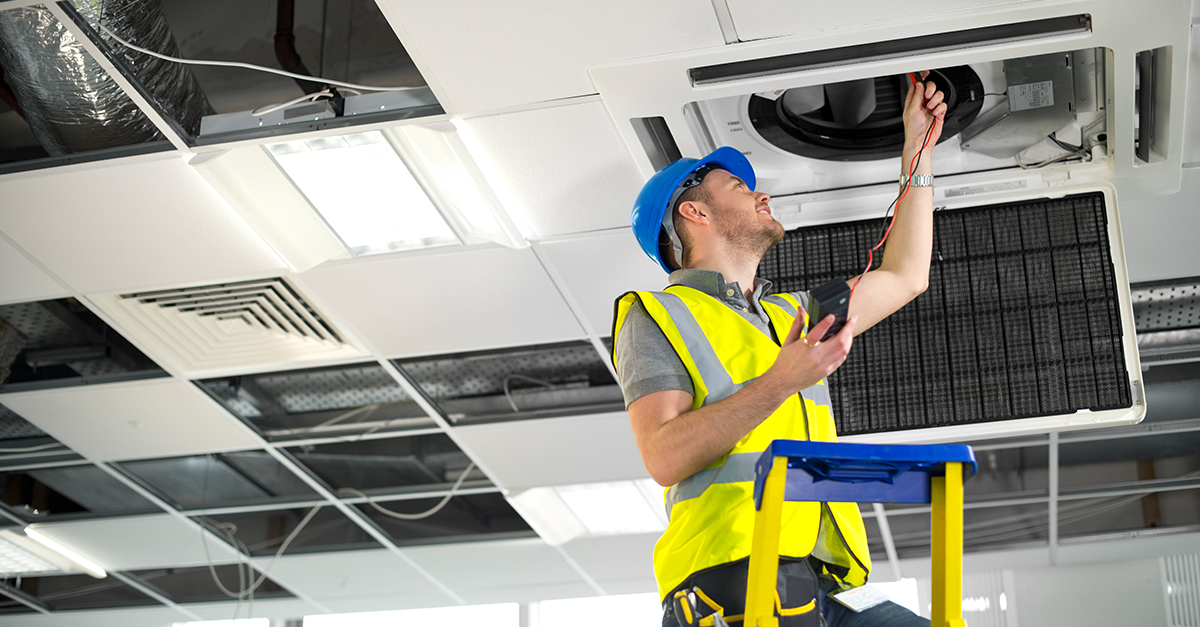Climate Control Chronicles: Mastering Your Home’s Heating and Air Conditioning
Climate Control Chronicles: Mastering Your Home’s Heating and Air Conditioning
Blog Article

When it comes to creating a comfortable living environment, mastering your heating and air conditioning systems is essential. These systems are not just luxuries; they are crucial for maintaining the ideal temperature in your home, regardless of the season. As seasons shift, so do our needs for warmth in the winter and coolness in the summer. Understanding how these systems work and how to optimize their performance can lead to better energy efficiency, lower utility bills, and a more comfortable home for you and your family.
In this journey through the world of heating and air conditioning, we will explore various methods and technologies that can help you take control of your home's climate. From choosing the right type of system for your space to learning essential maintenance tips, this guide aims to empower you with the knowledge needed to enhance your indoor comfort. Whether you are looking to replace an old unit or simply want to maximize the performance of your current systems, the information provided here will serve as your roadmap to climate control mastery.
Understanding HVAC Systems
Heating, ventilation, and air conditioning, commonly referred to as HVAC, encompasses the technology that provides thermal comfort and acceptable indoor air quality. At the heart of every HVAC system is its ability to distribute heated or cooled air throughout a space, ensuring that the environment is comfortable regardless of outdoor conditions. HVAC systems perform crucial functions including heating the home in the winter, cooling it in the summer, and maintaining overall air quality through ventilation and filtration.
An HVAC system typically consists of several essential components, including a furnace or heat pump for heating, an air conditioning unit for cooling, and a network of ducts that transport air to different rooms. In addition to these core elements, modern systems often incorporate programmable thermostats, humidity controls, and air purifiers to enhance comfort and efficiency. Understanding how these components interact can help homeowners optimize their systems for better performance and energy savings.
Trusted Residential Heating and Cooling Services
Efficiency is a crucial factor when it comes to selecting an HVAC system. Systems are rated for their performance with measures like Seasonal Energy Efficiency Ratio (SEER) for air conditioners and Annual Fuel Utilization Efficiency (AFUE) for furnaces. Higher ratings typically indicate more efficient systems that can lead to lower energy bills and a reduced environmental impact. Homeowners should consider these ratings when investing in heating and air conditioning systems to ensure they choose an option that aligns with their comfort needs and energy use goals.
Optimizing Energy Efficiency
Energy efficiency is essential when it comes to heating and air conditioning. By taking steps to improve your system's efficiency, you can reduce your energy bills and minimize your carbon footprint. Start by ensuring your heating and cooling systems are properly maintained. Regular cleaning of filters, ducts, and coils helps these systems run smoothly and reduces the amount of energy required to heat or cool your home.
Another effective strategy is to invest in a programmable thermostat. This technology allows you to set your system to operate only when needed, which can lead to significant energy savings. For example, you can program the thermostat to lower the heat or increase the air conditioning while you are away from home. This ensures that you are not wasting energy on heating or cooling an empty space, making your home more energy-efficient.
Additionally, consider the insulation and sealing of your home. Proper insulation keeps the indoor temperature consistent, which means your heating and air conditioning systems do not have to work as hard to maintain comfort levels. Sealing any gaps or cracks in windows and doors can prevent air leaks, further enhancing energy efficiency. By focusing on these areas, you can create a more comfortable living environment while also saving energy and money.
Seasonal Maintenance Tips
Regular maintenance of your heating and air conditioning systems is essential for optimal performance and longevity. Start by changing the air filters every one to three months, depending on the type of filter you use and how often you run your system. Clean filters help maintain good air quality and make your HVAC system work more efficiently. Additionally, check the outdoor units for debris, such as leaves and dirt, and clean the area around them to ensure proper airflow.
As seasons change, it's important to schedule a professional inspection of your heating and air conditioning units. A technician can identify potential issues and perform necessary repairs before extreme weather sets in. This preventative maintenance saves you from unexpected breakdowns and costly repairs when you need your system the most. During the inspection, they might also recommend a tune-up, which can enhance efficiency and extend the life of your equipment.
In preparation for winter or summer, consider programming your thermostat to optimize energy use. During colder months, set it a few degrees lower when you're away, and in the hotter months, adjust it higher. Investing in a smart thermostat can automate these changes and contribute to energy savings. Embracing these seasonal maintenance tips will ensure that your heating and air conditioning systems operate smoothly year-round, providing you with comfort and peace of mind.
Report this page